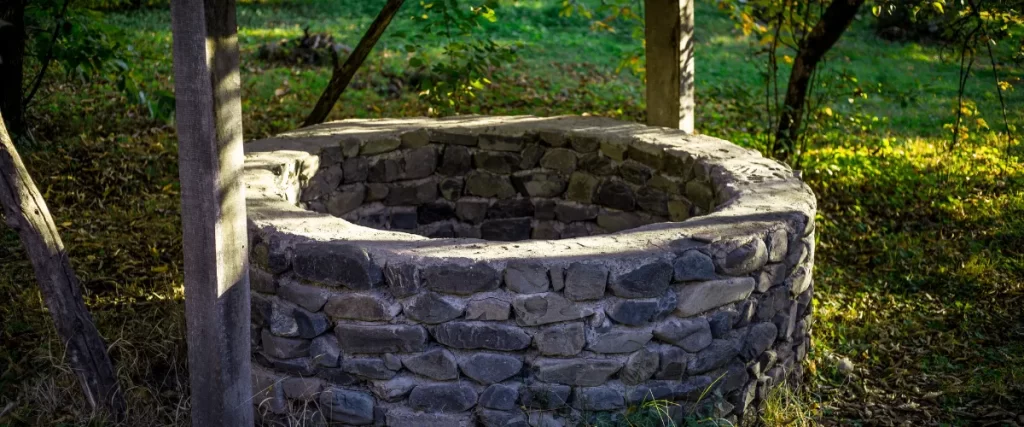When you’re building a custom home in rural Middlesex County, you get the freedom to create the home you’ve always wanted. But one question that surprises a lot of first-time rural homeowners is: Where will your water come from—well or city water?
This decision isn’t as straightforward as it may seem, and it can impact everything from your home’s plumbing design to your long-term maintenance and utility bills.
Whether you’re eyeing land in Monroe Township, South Brunswick, or Old Bridge’s rural outskirts, this choice will shape how you experience daily life in your new home. Let’s walk through what you really need to know to make an informed, confident decision.

Why Water Source Matters for Custom Homes in Middlesex County
Water is something most people take for granted—until you build a home in an area without municipal access. In many parts of rural Middlesex County, especially on larger lots and agricultural zones, city water simply isn’t available. That leaves well water as your primary option.
On the other hand, if you’re building closer to suburban pockets or near planned developments, city water might still be within reach. But it comes with fees, regulations, and utility dependence.
The decision between well water and city water isn’t just about access—it’s about water quality, cost, control, and peace of mind.
Well Water vs. City Water: Key Differences at a Glance
| Feature | Well Water | City Water |
| Source | Private underground aquifer | Public water system |
| Ownership | You own and maintain it | Municipality-owned and maintained |
| Upfront Cost | Higher (drilling, pump, treatment) | Lower connection cost (if lines are nearby) |
| Monthly Bills | No water bill (except electricity for the pump) | Monthly usage charges apply |
| Water Quality | Natural, can vary (needs regular testing) | Regulated and treated |
| Maintenance | Your responsibility | Municipality handles it |
| Dependability | Very high if maintained | High but subject to city-wide disruptions |
Understanding Well Water in Middlesex County
How It Works
Well water comes from a private well drilled deep into an underground aquifer. In Middlesex County, many rural properties tap into groundwater sources 100–300 feet below the surface. A submersible pump system draws the water into your home.
Pros of Well Water
- No monthly water bill.
- Full independence from city water systems.
- Naturally filtered by soil and rock—no chlorine or additives.
- More control over quality and usage.
Cons of Well Water
- High upfront cost to drill the well (can range from $6,000–$15,000+).
- Requires annual testing for safety.
- May need water treatment systems (like softeners or filters).
- You’re responsible for all maintenance and repairs.
Water Quality in Central NJ
Middlesex County groundwater is generally safe, but can contain:
- Hard minerals (calcium, magnesium)
- Iron or manganese, which can stain fixtures
- Coliform bacteria from surrounding soil or septic systems
- Nitrates if near farms or old septic fields
The NJ Department of Environmental Protection (NJDEP) recommends homeowners test private wells at least once per year. Learn more at the NJ Private Well Testing Act page.

What to Know About City Water in Middlesex County
City (or municipal) water comes from a central treatment facility. In many parts of Middlesex County—especially in townships like Edison, Woodbridge, and Highland Park—it’s the standard. Some areas closer to New Brunswick, Spotswood, and East Brunswick’s core also have access.
Pros of City Water
- No maintenance—the town or city handles it.
- Water is filtered and tested to meet EPA standards.
- Easy and consistent pressure and flow.
- No upfront drilling or pump equipment to install.
Cons of City Water
- Monthly utility bills (often $30–$100/month depending on use).
- Contains chlorine and other additives.
- Prone to municipal shutdowns or boil advisories after storms.
- You must comply with water restrictions or usage caps in droughts.
If you’re not sure whether your lot can connect to city water, contact your local municipality or use this Middlesex County Planning Department resource.
Important Factors to Consider When Deciding
1. Location of Your Lot
Is there existing water infrastructure nearby? In some rural areas, connecting to city water would require installing hundreds of feet of water line—at your cost.
2. Lot Size and Setbacks
Drilling a well requires space and clearance from septic systems, property lines, and nearby contaminants.
3. Budget
Are you comfortable investing in a private system now to save money later? Or would you rather avoid upfront costs and pay monthly?
4. Lifestyle
Some people prefer the taste and mineral profile of natural well water. Others want the convenience of low-maintenance municipal water.
5. Resale Value
Buyers unfamiliar with wells may be wary, but a properly maintained system is a huge plus for the right buyer.
What About Water Filtration and Treatment?
If you go with well water, a whole-house filtration system may be necessary, especially if you’re dealing with hard water or iron.
Common Systems Include:
- Water Softeners (to remove hard minerals)
- Carbon Filters (to improve taste and remove odors)
- UV Filters (to kill bacteria)
- Reverse Osmosis Systems (for ultra-pure drinking water)
Even with city water, some homeowners opt for under-sink reverse osmosis filters to eliminate chlorine taste and other additives.
Best Water System Equipment Manufacturers
If you’re choosing or maintaining a private well system or upgrading city water filtration, working with trusted manufacturers ensures long-term reliability and safety.
Top Water Equipment Manufacturers to Consider
Grundfos High-performance submersible well pumps known for efficiency, reliability, and quiet operation.
Culligan Whole-home water filtration systems tailored for hard water and iron-heavy well water.
A. O. Smith Quality water softeners and filters for both well and city water applications.
Pentair Smart water solutions, including UV purification and advanced carbon filtration systems.
FAQ: Well vs. City Water in Middlesex County
Can I switch from well to city water later?
Possibly—but only if municipal lines are close by. Installation costs can be significant.
Is well water safe to drink in Middlesex County?
Yes, with proper testing and filtration. Annual testing is key to staying safe.
Do I need permits to drill a well?
Yes. You’ll need to work with a NJ-licensed well driller and get local approval. Visit NJDEP’s well permitting page for info.
What’s the maintenance cost for a private well system?
Plan for $150–$500 per year for testing, filter changes, and potential pump servicing.
Will I need a water softener in Middlesex County?
Most likely, especially if you’re using well water. Hard water is common in the region.

The Bottom Line: Know Your Water Before You Build
When you’re building a custom home in rural Middlesex County, choosing between well water and city water isn’t just about pipes and pumps—it’s about how you’ll live in your home for decades to come. Each option comes with trade-offs, but both can serve you well if you understand how to plan for them.
If you need assistance assessing your lot, determining water access, or planning the perfect plumbing system for your home remodeling project, contact us at (732) 913-0742. We’ll walk you through every step—from well depth and permits to filtration systems and municipal tie-ins—so you can move forward with confidence.
